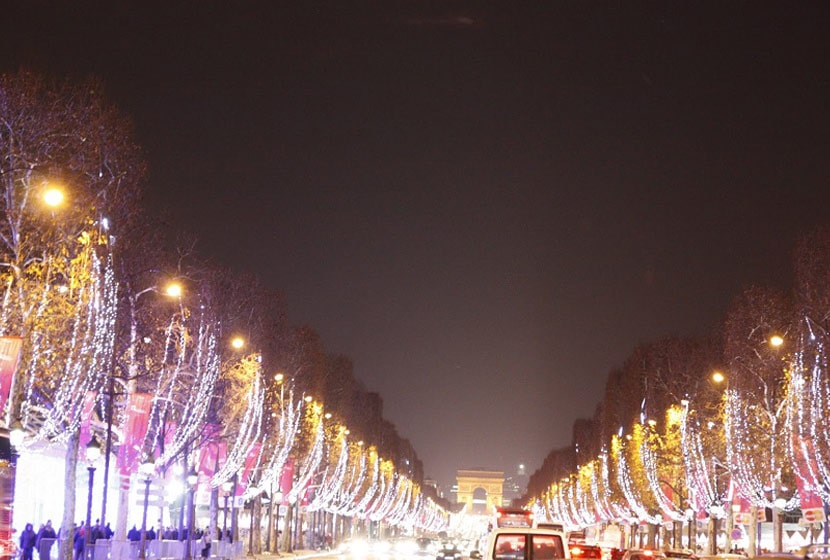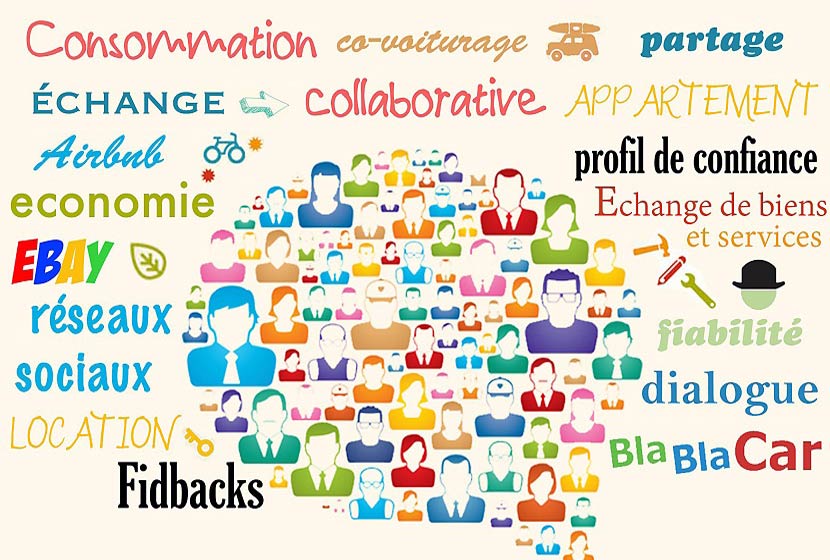Internet commerce - e-commerce - with the possibilities it offers to shop anywhere and anytime, is revolutionizing traditional commerce. Traditional commerce must reinvent itself if it is not to go under. However, the decision of the Court of Cassation not to authorise night and Sunday work, which would allow physical shops to survive, has just been overturned. Some voices are insisting on the lack of flexibility and on a decision "from another age" that would not take into account the economic reality.
The 11th edition of the Porte de Versailles e-commerce trade show has just closed its doors: 30,000 visitors and more than 500 companies present (including 13 international %) (Source : ecommerceparis.com) thus consecrating the rise and popularity of this new purchasing behaviour.
France ranks 10th in international e-commerce, behind China, India, Brazil, Italy, the United Kingdom, Canada, Spain, the USA and Denmark. And ahead of Germany, Japan and Australia. (eMarketer 2014 figures).
Revenues from e-commerce in France jumped by 10.5% in the second quarter of the year, to 13.3 billion euros, according to Fevad. In other words, the sector achieves in one quarter what it managed to achieve in one year in 2006 (11.6 billion euros in turnover for the whole year). As a result, an increasing number of players want to position themselves: the number of merchant sites increased by 15% over one year, to 147,200 sites. and FEVAD estimates that there will be about 10,000 more by the end of 2014.
The frequency of online purchases increased (+7% over a sliding quarter) for an average amount spent of 488 euros over the three months. Mobile Internet sales soared by 52% (Source: Frenchweb - 25 Sept 2014). E-Commerce is therefore a market with significant growth prospects, in perpetual evolution. It's time for the online merchants...
"E-commerce is growing at the expense of traditional commerce" confessed about France info le chroniqeur Vincent GiretOn Monday, September 22, against the giants of e-commerce that are developing all over the world. E-commerce therefore continues to nibble away at traditional commerce.
What is the status of traditional trade to date?
Remember: trade could date back to prehistory, 150,000 years ago, when the exchange of goods began. In the early days of retail trade, all products were usually picked up behind the store counter where customers waited for an "assistant" to pick up the products ordered. Until the 1950s, retailers were mostly located on street corners, close to their customers. In the early 1950s, retailers opened supermarkets where customers could help themselves. Then during the 1960s, hypermarkets, with a larger sales area, appeared in Europe (in 1963 the first Carrefour de Sainte Geneviève des Bois opened).
New technologies are becoming more and more embedded in our lives and have a direct impact on the way we consume. Thanks to all the tools that surround them, consumers are more informed than before and are therefore becoming more demanding. Faced with this over-information, some stores have become aware of this phenomenon and have therefore metamorphosed their businesses to allow customers to enjoy the benefits of digital while being in the store. The customer can use his smartphone to connect but the experience is different when the brand itself provides the necessary tools because, in this case, the consumer remains continuously bathed in its atmosphere. The connected store creates a strong link between online and offline and thus solves one of the biggest problems facing retailers.
These technologies not only reassure the customer by providing all the necessary information at the point of purchase, but also create a brand atmosphere that will add a certain proximity to the store. This combines the advantages of e-commerce and the store and can become the business of the future by blurring the line between the two.
And what about the public authorities faced with the economic reality?
But while waiting for all physical businesses to take this voice, some have decided to change their habits. Like the perfume chain Sephora, which, given the exceptional traffic on the Champs-Elysées, the store would make nearly 20% of its sales after 9pm. Hence the decision to propose night work based on voluntary work and where employees would benefit from increased pay.
However, the Court of Cassation has confirmed the ban on night work for the Sephora Champs-Elysees store. In its judgment dated 24 September, the court held "that night work cannot be the normal mode of organisation within a company", according to the Labour Code, and that recourse to night work "is not inherent to the activity" of a perfumer.
This is an opportunity for the President of the Entrepreneurs' Club, founder of the Didaxis group and member of Croissance Plus, Guillaume Cairou, to push for a facelift. "to put an end to the entrepreneurial mystique and the opening of businesses in the evenings and on Sundays. »
Guillaume Cairou, President of the Entrepreneurs' Club protests against this decision. " which is based on archaic texts and disconnected from the reality of the field experienced by French entrepreneurs ". It takes note but calls on the legislator to address this issue without delay in order to settle the regime definitively:
"We have to free up work in the evenings and on Sundays. We have to free up the job. No country in the world asks itself this crazy question of when and how the state should prevent employees from working when they are voluntary and better paid," says Guillaume Cairou.
For him, "we need to loosen the brakes on growth. This means first and foremost loosening the stranglehold on employment in our country. It's a question of working on Sundays and working in the evenings. Pursuing a growth policy means reintroducing common sense. It is therefore about allowing everyone who wishes to do so, or who is better off as a result, to work when they wish. This is the only way we will give back purchasing power to our employees and our companies will create sustainable employment".
"Have we forgotten that it is work that secures the future of our pensions? Have we forgotten that it is work that makes the job? Have we forgotten that it is employment that makes growth? Have we forgotten that it is work that makes purchasing power? Isn't it time to learn the lessons of 40 years of failure in this area? "wonders Guillaume Cairou, exasperated.
"Measures that prevent work on Sundays and in the evening hamper employment, growth and purchasing power. The Labour Code is supposed to protect employment, in this case it destroys it. I would prefer that we allow everyone to work on Sundays and evenings if they wish, rather than financing queues of unemployed workers and fuelling a social drama from which we cannot escape when we can! "says Guillaume Cairou.
"Work must be released immediately on Sundays and evenings. Who can claim, unless they are in absolute bad faith, in this age of Internet commerce, that our Labour Code is not definitively outdated? Who can understand that on the most beautiful avenue in France, a sports sign is allowed to work, but not the neighbouring perfume sign? "says Guillaume Cairou, indignantly.
"Entrepreneurship is not a wolf to the employee! Let's have the courage to make the reforms that are needed and that the French are desperately waiting for and approve of. "according to him.
Prime Minister Manuel Vals has confirmed the government's wish to move towards greater flexibility in tourist areas, so that the rules governing night and Sunday work will be changed. (Source: Reuters). To be continued.












